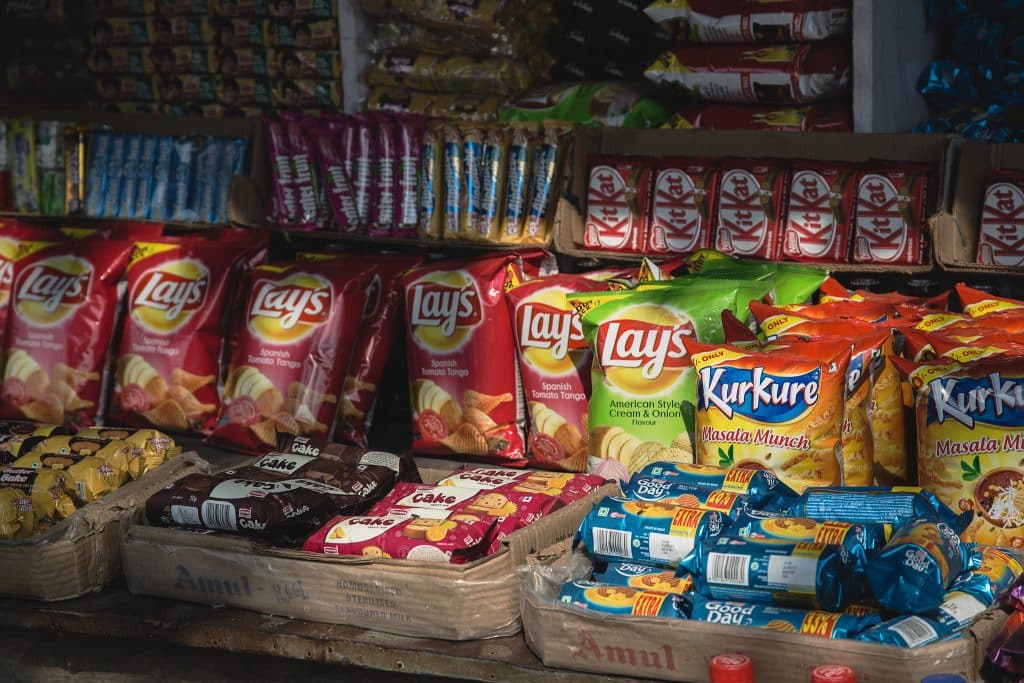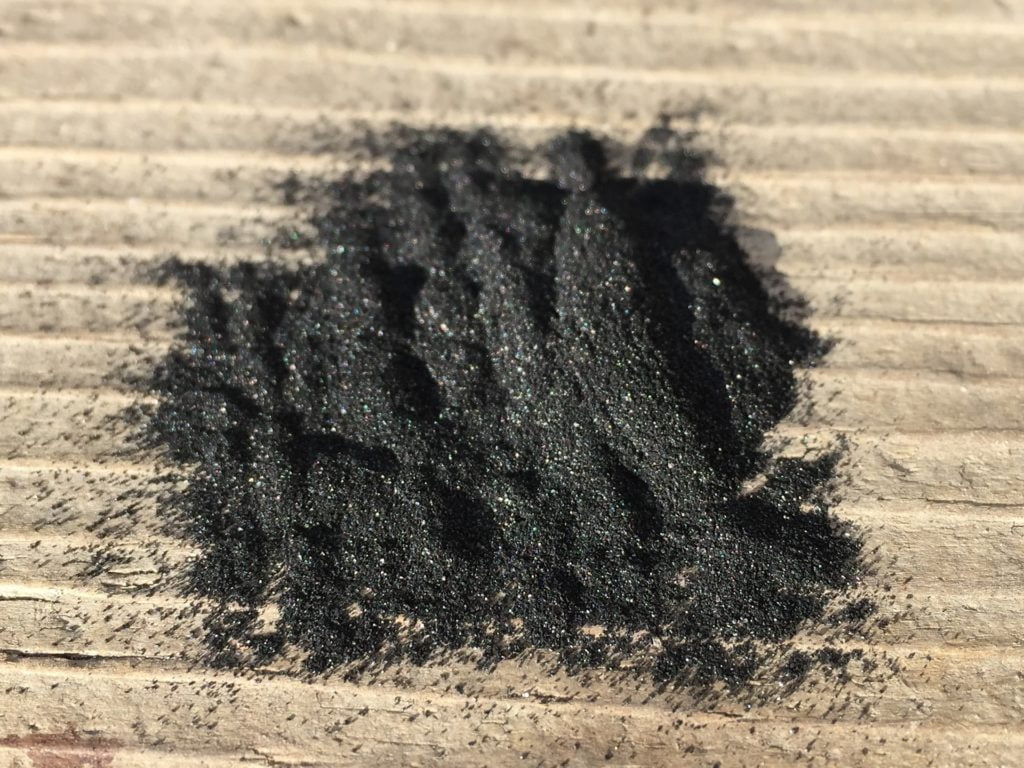An inevitable part of modern life is being bombarded with advice and information about food and health. Whether it’s from newspapers, magazines, social media influencers, doctors, family members or colleagues at work, it’s hard to escape these constant messages about what to eat, which foods are ‘good’ or ‘bad’ and the latest ‘miracle’ weight-loss diet.
Of course, not all of this information is accurate, and some of it can be downright harmful. But given how widespread diet misinformation and scaremongering is, many people unknowingly follow advice that damages their physical and mental health. This can cause real-life harm, but there are practical tips you can follow for protecting yourself from this minefield of misinformation.
Common nutrition myths and fads
There are countless fad diets and nutrition myths out there. While they come and go and change over time, similar trends tend to reappear again and again, often with a new spin or rebrand.
Let’s take a look at five of the most common examples circulating today that include oversimplified or inaccurate information.
Anti-Sugar and Low-Carb
One of the most pervasive myths is that sugar and carbohydrates are inherently bad for you. This is nothing new, as low-carb weight loss diets have been around since the 1860s.
Currently, there’s a lot of anxiety around sugar and feeling the need to micromanage blood glucose levels. However, it’s normal for blood glucose to rise temporarily after eating and this isn’t something that needs to be monitored unless you have diabetes.
It’s true that excessive sugar intake can contribute to health issues, particularly in terms of dental and metabolic health, but carbohydrates are a very important fuel source for the body, and the preferred fuel source for the brain. Demonising all carbs can also contribute to nutrient deficiencies, low energy, ‘keto flu’, digestive issues (as the best sources of fibre contain carbs too), hormonal and fertility issues for women, and disordered eating.
Therefore, it’s much healthier for most people to include a variety of carbohydrate-containing foods, especially those that are high in fibre, rather than trying to cut them out or stressing too much about them.

Fear of Ultra-Processed Foods (UPF)
There’s been growing fear about ultra-processed foods (UPF), with many people trying to avoid them entirely. This is a perfect example of how oversimplified, scare-mongering messages about nutrition can be really harmful.
I’ve spoken to countless people who are really worried and stressed about UPFs. Parents have told me how they feel like a failure for being unable to serve less UPF to their kids who also have food allergies and are selective eaters. Sadly, many people have told me about how UPF anxiety has damaged their relationship with food, and in some cases even triggered an eating disorder relapse.
It’s true that some highly processed foods are low in nutritional value and high in added sugars, fats, and salt. But importantly, how processed a food is doesn’t define its nutritional value. Food processing also has many benefits, such as increasing food safety and shelf life, fortifying food with extra nutrients, and improving taste, convenience and accessibility to food. So fearing and trying to avoid all UPFs is much more likely to do harm than good.
‘Superfoods’ and Greens Powders
The idea that certain ‘superfoods’ are a nutritional cure-all has been around for a while, but the term is just a buzzword and it doesn’t actually mean anything from a nutrition science perspective. Yes, foods that are given this title – like kale, chia seeds, and blueberries – are undoubtedly nutritious, but the important thing is the balance of your overall diet over time rather than obsessing about individual foods like this. No single food makes or breaks your diet overall.
More recently, greens powders and superfood powders have become very popular; appealing to busy people, ‘biohackers’ and those who want to optimise ‘wellness’. It’s easy to see the appeal based on the marketing, which boasts that just taking this powder will simplify healthy eating and have a miraculous impact on your health.
Although these powders do provide certain nutrients, they cannot replace the beneficial effect of actual food (often referred to as the ‘food matrix’), they have not all been subject to rigorous safety testing and can contain ingredients that can worsen gut symptoms and interact with medication etc. There are also much cheaper vitamin and mineral supplements available when there are nutritional gaps to fill.
Fasting Diets
Intermittent fasting has been one of the most popular diets of the past decade, but fasting diets more generally have been used for both religious and health reasons for thousands of years.
There’s some promising research related to intermittent fasting and health, around heart health and diabetes in particular, but overall there’s limited long-term human research available and still a lot of unknowns.
Fasting, even intermittently, also carries a number of risks, such as: fatigue, headaches, mood swings, increased urination, a potential increased risk of gallstones and menstruation issues. There are plenty of situations in which a regular supply of nutrients are particularly important, such as for pregnant women, children, and those who are very active, malnourished or ill.
It’s also a form of restriction, so it can be very risky for those with a difficult relationship with food, or those at risk of developing disordered eating. For example, fasting has been linked with a higher risk of binge-eating disorder and bulimia nervosa; although the research is limited in this area. Anecdotally, I have had a significant amount of clients who have tried intermittent fasting and this has spiralled into disordered eating.
Intermittent fasting comes in lots of different forms, so some people may find the less extreme versions work for them. But it’s important to be aware of the risks outlined above, especially if you are nutritionally vulnerable or have a high risk of disordered eating. This article goes into more detail about the overlap between intermittent fasting and disordered eating.

Detoxes and Cleanses
Unfortunately, detoxes and cleanses remain popular despite being debunked time and time again. These diets often claim to rid your body of toxins and jumpstart weight loss, usually through restrictive juicing, fasting or herbal supplements.
However, your body already has a natural detox system, primarily through the liver, kidneys, and digestive system. Extreme detoxes can actually harm your health by depriving your body of essential nutrients, causing fatigue, and even disrupting metabolism and digestion. Hence, the words ‘detox’ and ‘cleanse’ are seen as red flags by evidence-based nutrition professionals.
The Big Picture of Diet Misinformation
It’s unsurprising that we’ve ended up in this place where nutritional nonsense is so prevalent. Celebrities and traditional media have contributed to this for a long time, and social media has really amplified this widespread confusion and obsession with nutrition.
Lots of people feel like they’re experts in nutrition, since we all eat and interact with food daily. If you compare this to other areas of science, you don’t see celebrities, influencers and doctors claiming to be experts in quantum physics or thermodynamics without a relevant qualification! But people often trust people with nutrition and lifestyle advice who are wealthy and seem happy, like the Kardashians and their ongoing promotion of nutrition and weight loss supplements. So this nutritional nonsense often trumps evidence-based nutrition information in the eyes of the public.
Fad diets and over-simplified messages are also really appealing as they prey on our emotions and insecurities. They promise ‘quick fixes’, transformation and a sense of control in an environment that makes us feel bad about ourselves and places a lot of our worth in our appearance.
Even when somebody is doing their best to follow reputable nutrition advice it’s not always easy. For example, in contrast to ‘dietitian’, the term ‘nutritionist’ isn’t a protected title, so anyone can use it to make themselves seem like a nutrition expert (although there are lots of excellent and legit nutritionists too).
Similarly, there are doctors and scientists who seem credible and position themselves as nutrition experts without having any actual nutrition training or qualifications. In fact some of the most insidious nutritional information being circulated at the moment is being promoted by such ‘experts’.
There’s no escaping the impact of the weight loss industry and fatphobia in all of this. The stigma and fear surrounding bigger bodies primes us as a society to try and avoid gaining weight at all costs.
But despite the emphasis there’s been on the obligation to lose weight or avoid weight gain for years, there isn’t good evidence to show that weight loss diets are effective. For example, only around 50% of participants in weight loss studies are seen to lose at least 5% of their body weight (the minimum amount seen as clinically significant) and most people regain a lot of the weight — or gain even more — within 5 years of dieting. This keeps so many people trapped in an endless cycle of going on and off diets for years.
Weight loss diets are also linked with a higher risk of:
- Disordered eating
- Poor body image
- Mental health issues
- Weight cycling up and down
- Reduced metabolism
- Lower levels of the fullness hormone leptin
- Less healthy behaviours
So the message that following a diet realistically leads to weight loss for most people is probably the most pervasive nutrition myth out there, and this trickles into so many other fads too.
How to Protect Yourself From Nutritional BS
Knowing that nutritional misinformation can lead to real-world harm is an important first step in increasing your awareness and arming yourself against this.
Next, you can keep an eye out for nutritional red flags like:
- Black and white framing of foods as simply ‘good’ vs ‘bad’
- Miracle cures and messages that seem too good to be true, eg lose two stone in a week
- Extreme approaches, eg very restrictive, long fasts, eating raw meat or only meat etc.
- The appeal to nature, eg eat ‘natural’ or ‘like your ancestors’ etc.
- Too much emphasis on supplements (especially if selling these too)
- Focuses on appearance rather than health, eg bikini body challenge, skin glowing cleanse etc
- The words ‘detox’ or ‘superfood’
- Promoting diet or supplements in place of medical treatment
- Food sensitivity tests (ie not those carried out by a medical doctor)
If you want to go a step further and protect yourself from diets and diet culture as a whole, it can be really help to reflect on your relationship with food, body image and the fatphobia that most of us carry around from existing in this society.
The books I most commonly recommend to help with this are:
- Intuitive Eating, 4th Edition: A Revolutionary Anti-Diet Approach by Elyse Resch and Evelyn Tribole
- Just Eat It and How to Just Eat It books by Laura Thomas
- “You Just Need to Lose Weight”: And 19 Other Myths About Fat People by Aubrey Gordon
- Body Kindness by Rebecca Scritchfield
And if you feel like you need support with this, the first step is often to speak with your GP. If public support options aren’t available for you, which is all too common sadly, there are also private options available (including my own clinic). The UK charity Beat is another great place to find further information and support services related to disordered eating (I use this term rather than eating disorders to be more inclusive of those who may not fit the specific diagnostic criteria for an eating disorder).
So despite all the never-ending nutritional misinformation we’re surrounded by, it is definitely possible to protect yourself from this and make evidence-based nutritional choices to benefit your health while also safeguarding your relationship with food.



